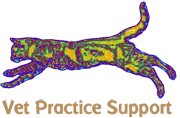Gastropathy caused by hypoadrenocorticism in dogs
I guess we know that hypoadrenocorticism (both ‘typical’ and ‘atypical’) is associated with gastrointestinal signs including ulceration. I’ve not managed to find a completely convincing pathophysiological explanation of the mechanism for this. However, I just wanted to share a couple of sonographic images of the stomach wall in addisonian dogs. They can be really striking.
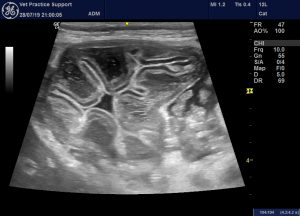
Longitudinal plane view of the stomach in a dog with hypoadrenocorticism. There was no obvious evidence of ulceration but the wall is diffusely thickened.
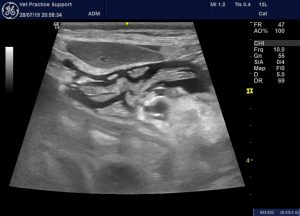
longitudinal plane view from the left flank of the oedematous pancreas (deep to the spleen) from the same patient. This dog had been on intravenous fluids for 48 hours prior to sonography. Oedema may also be a factor in gastric wall thickening.
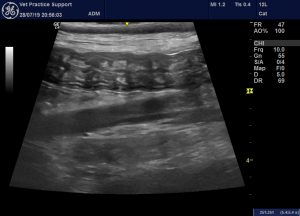
Longitudinal view of the left colon: again from the same patient. There is diffuse colonic wall thickening too.
But it’s not just an iatrogenic phenomenon. This is another atypical hypoadrenocorticism patient pre-treatment:
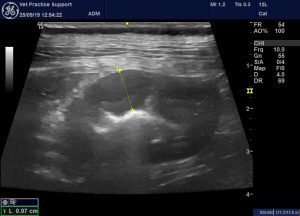
And yet another (also with normal electrolytes):
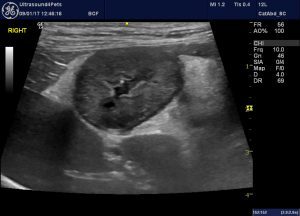
This dog did also have gastric ulceration. Hence the markedly hyperechoic peri-gastric fat.
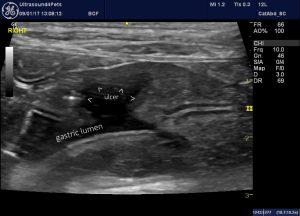
Acute, severe pancreatitis can also cause marked stomach wall thickening:
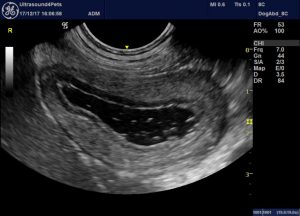
A similar longitudinal plane view across the gastric body in a dog with acute severe pancreatitis.
As can gastric lymphoma.
